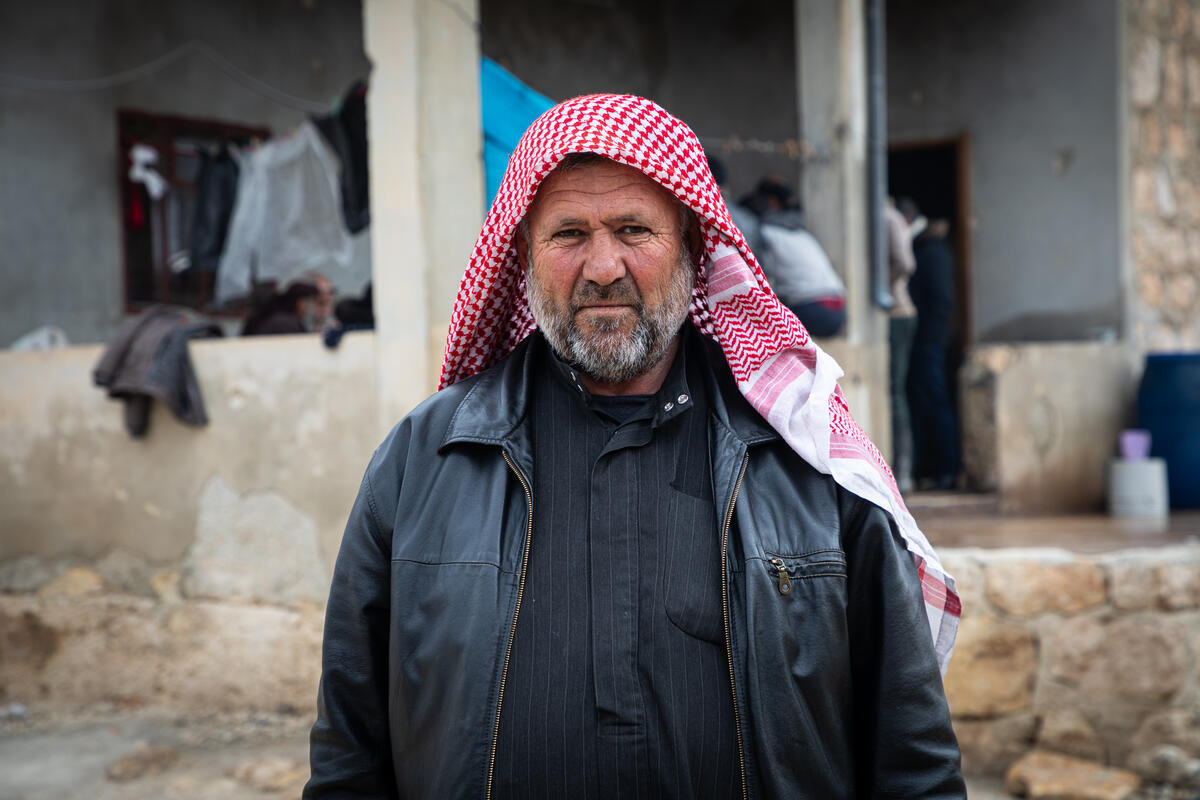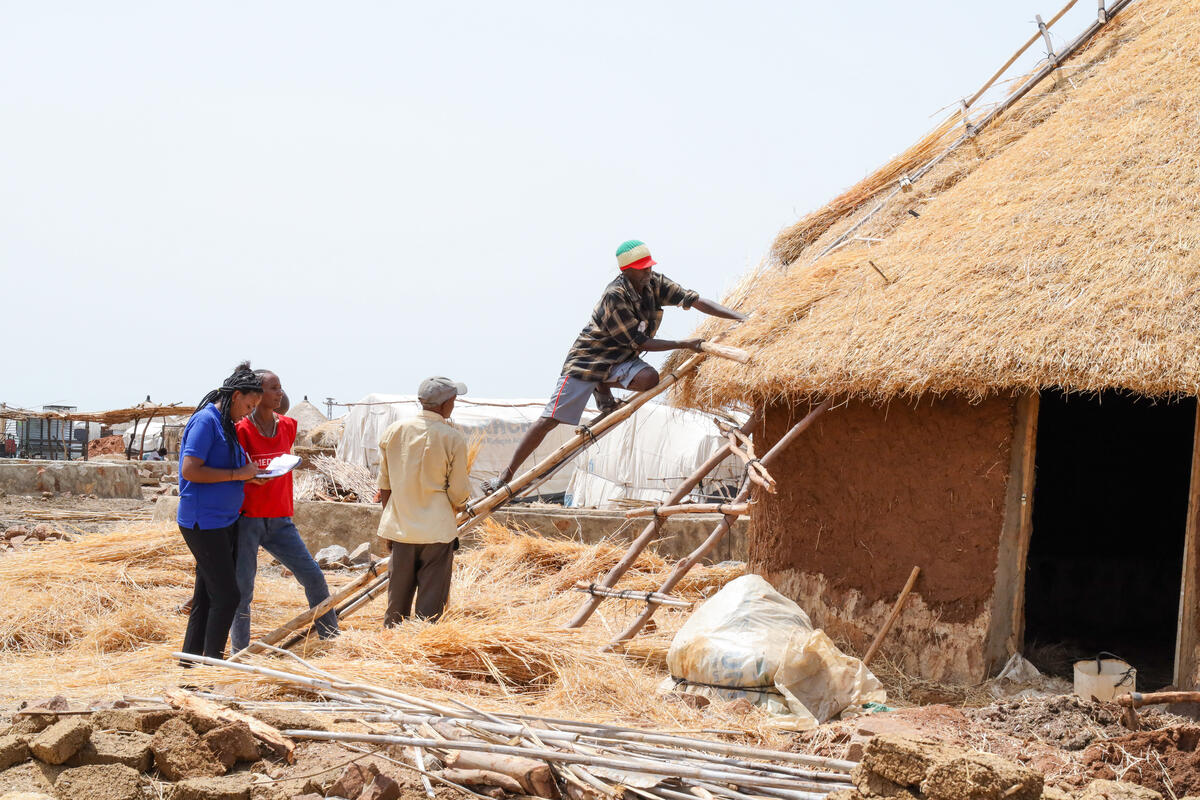Afghans help to build shelter for Balochistan's quake survivors
Afghans help to build shelter for Balochistan's quake survivors

KAWAS, Pakistan, December 24 (UNHCR) - For years they were considered passive recipients of humanitarian aid, but Afghan refugees are now using their skills to help their local hosts in the earthquake-hit areas of south-western Pakistan.
Pakistan's Balochistan province has always been prone to natural disasters like floods, drought and earthquakes. On October 29 this year, the northern parts of the province were hit by a devastating earthquake measuring 6.4 on the Richter scale, leaving behind enormous destruction.
According to government estimates, 166 people were killed and more than 370 were injured. Reports indicate that around 68,200 people were affected and some 7,600 houses were damaged. After the first winter snow in mid-December, the problems of the affected population have doubled. Their immediate needs are for winterized shelter that can withstand the harsh winter and adequate food for three months.
Through its implementing partners, UNHCR distributed 950 tents, 2,880 plastic sheets, 140 cooking sets, 4,800 blankets, 720 jerry cans and 1,000 mats immediately after a joint UN assessment in district Harnai, Pishin and Khanozai areas of Balochistan for affected Pakistanis and Afghans.
The picturesque Ziarat valley, located 100 kilometres north of the provincial capital Quetta and famous for its speckled juniper forests, was the worst affected area with scores of people left homeless. UNHCR's operational partner, Catholic Relief Service (CRS), has started a shelter programme in Kawas town of Ziarat district. Six Afghan carpenters were mobilized to help their Pakistani hosts build transitional shelters for quake survivors.
"Soon after I heard about this programme, I immediately agreed to volunteer myself because I felt this was the best time I could pay gratitude to our hosts for their hospitality," Muhammad Shafiq, one of the young Afghan carpenters, said excitedly.
CRS is building 400 transitional shelters and 200 toilets in Ziarat's Kawas and Kala Cheena villages for 3,600 of those affected, including 20 Afghan families. The weather is getting severe with every passing day and after the first winter snow, these transitional huts are now valued as a great relief by the survivors.
"Nothing substitutes the comfort of home which we have lost," said Muhammad Shafie, a former government employee and current shelter beneficiary. His house was reduced to rubble on the night of the earthquake. He and his extended family now live in the CRS transitional hut, which he says is better than an ordinary tent that cannot withstand the gusty chilling winds.
Khaliqdad, an aged Afghan refugee who lost his two-room house in the tremors, agreed: "This cold is killing us. I'm eagerly waiting for my hut to be completed soon so my children could sleep peacefully at night."
The six Afghans working for the shelter project were trained at a UNHCR-funded vocational training programme in 2003 facilitated by the International Catholic Migration Commission (ICMC). They represent a minority among the mass of unskilled, cheap labour provided by Afghan refugees in the province.
"We are happy to see the circle has gone its full course, from training refugees to using their productive skills for the local communities they have lived with for over 25 years," noted John Solecki, head of the UNHCR sub-office in Quetta.
Carpenter Najibullah is determined to provide the best of his skills to his Pakistani hosts. "We are not rich enough to provide any other support," he said. "Our skills are the only help we can offer, so we offered our services for no wages."
By Duniya Aslam Khan in Kawas, Pakistan









